Welcome to Day 2 of my weeklong series of Summer "Unschooling!"
Yesterday, I shared a few brief thoughts on why this unit study-Charlotte Mason-living literature-Thomas Jeffersonanion-Montessouri-notebooking-slightly textbooky-ECLECTIC momma somehow morphs into an UNSCHOOLER for the summer. I also presented a handful of ideas for encouraging creative writing while on a school-time hiatus.
Science, especially anything related to nature and the great outdoors, gets a little tricky during the school year in my neck of the woods. Unless we plan to study hibernation and/or dormancy, our nature study is limited to whatever happens to be able to withstand several feet of frozen "white."
Four years ago while chatting with some homeschool veterans, I decided that although I would continue to teach science throughout the school year, I would focus much of our science efforts during the summertime. Throughout the year, I make a mental note of what natural interests my kids develop as we read books together. If possible, we revisit those themes when the snow melts...or June starts...whichever comes first!
These summer-long units are very organic. I don't really do any planning. We simply read a lot of books, observe, make theories and test them, and do some notebooking to document our discoveries.
I thought I'd share a few of our past adventures in hopes that it might spark an idea or topic of interest for your summertime learning.
Summer-long Units
Butterfly Study
The Deputy's Wife is my go-to science gal. A few years ago, she was gracious enough to scour her property for milkweed and the little caterpillar critters that take residence on them every summer. She helped us nab a few to keep in a homemade observatory (a large pickle jar with netting over the top). We were able to watch the fascinating life cycle several times before summer's end.
Bird Watching
Come spring/summer, our area becomes an Audubon birder's paradise. With a few field guides and a homemade birdwatching notebook at her side, a then first-grade Sweetie Pea, set about to document every bird she saw. She even stopped in the middle of a Community Ed. soccer game to run over to the sidelines and tell me she saw an osprey's nest above the light pole.
I wish I still had the files for this bird book printable to be able to share it with you, but alas...
Instead, check out these other bird watching notebooking pages:
Think Crafts' Bird Watching Book
KidsCanHaveFun's Bird Watching Explorer sheet
Frogs/Toads
For years, we have had a family...and eventually a LARGE community...of frogs and toads living in our basement window wells. One summer, I had a plan to do a nature study on ants. I had prepared a notebook filled with observation activities, checked out several books from the library, and had bookmarked several scripture verses about ants in order to incorporate a character study using ants as a natural example. But, after only a few days of our study, it was quite clear that the frogs were much more intriguing to my little learners. In the true nature of "unschooling," I scrapped all my PLANS and enlisted the Hubs to help the kids round up some little leapers.TOPS Science Units
Now, before you write the "unschooling authorities", I realize that a pre-planned unit does not necessarily qualify as organic learning. That being said, I do think that TOPS Learning System books are excellent resources to jumpstart the natural learning process. They encourage exploration of a topic by presenting NUMEROUS projects that follow the steps of the scientific process.
are excellent resources to jumpstart the natural learning process. They encourage exploration of a topic by presenting NUMEROUS projects that follow the steps of the scientific process.We completed the Tops Radish kit this past fall and are spending the summer working through their Corn and Beans biology unit.
Other suggestions
Lord willing, we will have many summertimes in our future to be able to use these same patterns of natural learning to explore these other topics.trees
flowers
other insects
fish
spiders
stars






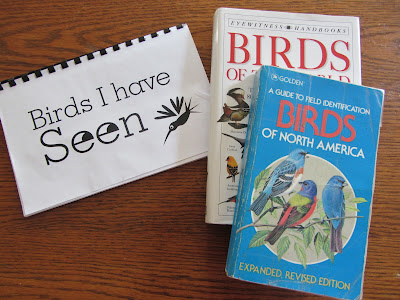







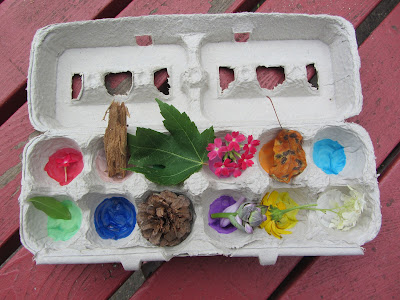
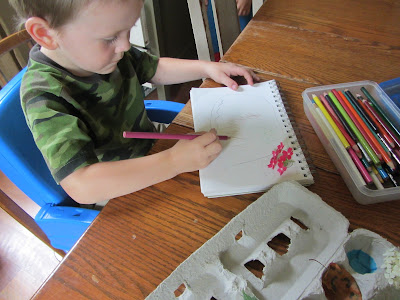
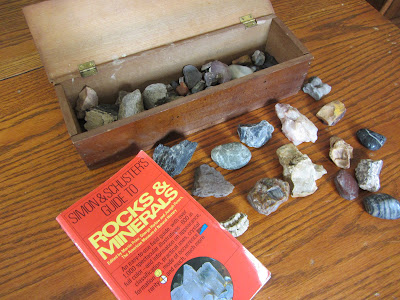
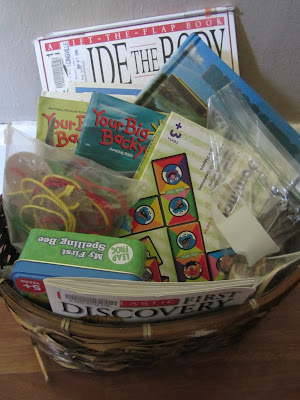
Holy Moly do I love this! Thanks for all the great ideas!
ReplyDelete...danielle
Thank you for visiting our blog today and for your kind comments! I loved reading your latest post. I jotted down a couple of those ideas and will try them out with the littles. Blessings!
ReplyDeleteGlad to hear it! Hope you swing in again soon.
DeleteI love all of your fantastic ideas!! This is wonderful! Awesome post. :)
ReplyDeleteWow! Thanks, Kristina. Glad you stopped by.
DeleteGreat ideas! This is how children should learn.
ReplyDeleteLove your site!
New follower from Musings of an Imperfect Mom
http://musingsofanimperfectmom.blogspot.com/
Love Love Love your ideas!!!! My 4 boys LOVE science and we are always doing unit studies. So thankful to have found your site.
ReplyDeleteI loved the look of the bird book, so I made up a page. I haven't printed it yet, but anyone's welcome to check it out. https://dl.dropboxusercontent.com/u/39515426/Bird.pdf
ReplyDeleteI was positive that you did not want to be associated with unschooling. That was the vibe I got from one of your other posts. So, my question, then, is why are you using the term unschooling? Unschooling is a style of homeschooling and not something you just do during the summer months.
ReplyDeleteHere is your condescending post about unschoolers. It seems to me that writing this post and then calling yourself a summer unschooler on this post is pretty hypocritical especially when you claim that unschooling breeds self centered children.
ReplyDeletehttp://www.theunlikelyhomeschool.com/2016/04/not-unschooler.html?m=1
If you are a regular reader of my blog and not just take one post completely out of the context of the whole, you would know that I am NOT an unschooler in the same sense that I am not ANY kind of schooler. I am eclectic which means I don't marry myself to any one method. I use a little bit of everything through different seasons and subjects. I think that unschooling has its place in the same way that Charlotte Mason education or classical or any method has its place. I take the best and leave the rest of ALL of these methods.
DeleteThank you for visiting our blog
ReplyDelete